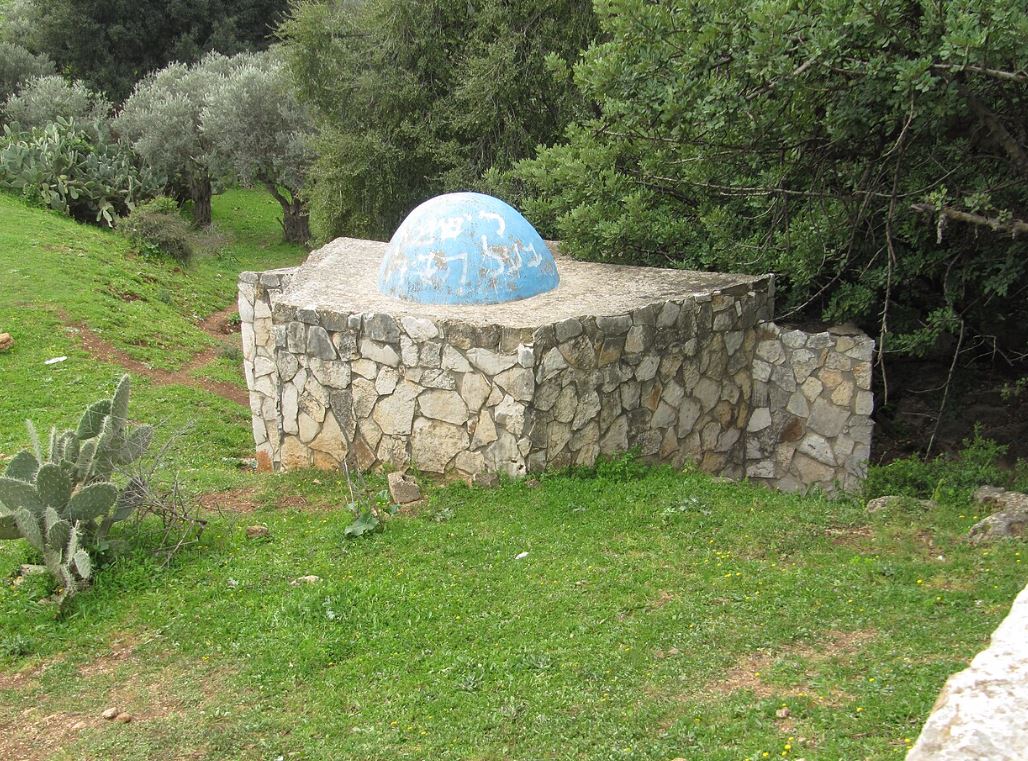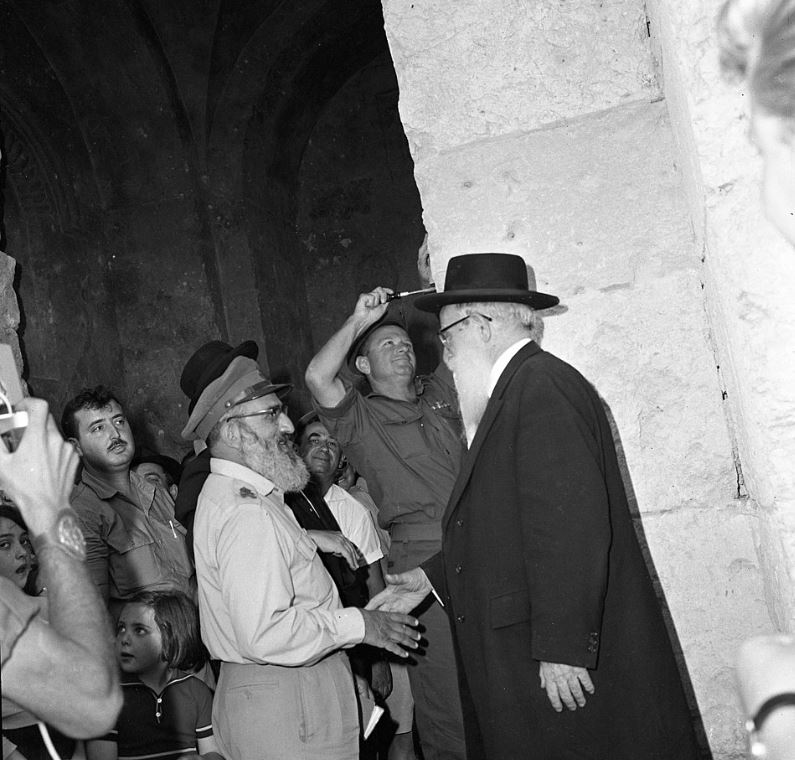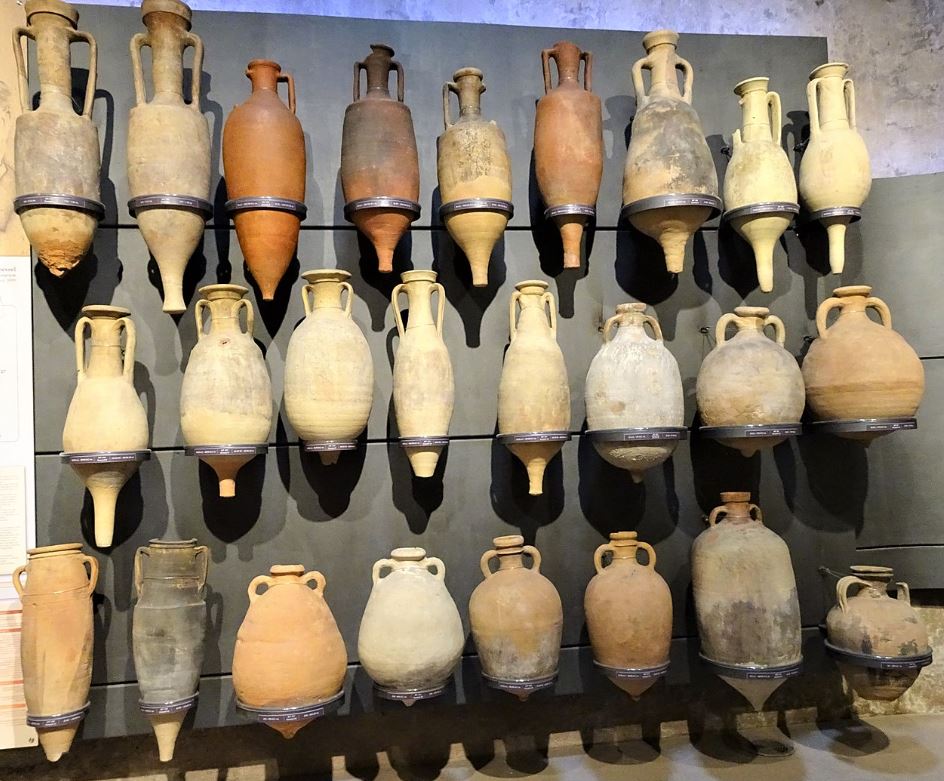Do you need advice? Instead of consulting your mother or your best friend, how about taking a look at a book that has suggestions for every situation, from complicated in-law relationships to marital difficulties and even theology. No, not Emily Post, Ben Sira:
“as it is written in the book of ben Sira: I have weighed everything in the pan of a balance scale and I have not found anything inferior to bran; but inferior to bran is a son-in-law who lives in his father-in-law’s house; and inferior to a son-in-law is a guest who brings in a guest; and inferior to a guest is one who answers a matter before he listens.” (Bava Batra 98b)
This quote is found in chapter twenty-eight of the Wisdom of Ben Sira, AKA Ecclesiasticus. If you are having trouble locating that book in your Bible, that means you are looking at a Tanakh, or a Jewish Bible. While Ben Sira is included in many Christian Bibles, for Jews this book is part of the Apocrypha. The Apocrypha, parts of which are included in the rabbis “outside books,” ספרים חיצוניים, are books written by Jews that did not make the cut into the Hebrew Bible. Besides Ben Sira they include Maccabees, Judith, Tobit and others. Many of these works were written sometime in the Second Temple period (like some Biblical works) and had status among Jews, albeit without meriting entry into the canon.
Unlike some other books, Ben Sira is easy to date. Shimon ben Yeshua ben Elazar ben Sira writes about many Biblical figures and one who is post-Biblical, Simon ben Yochanan the high priest, otherwise known as Shimon haTzaddik, Simon the Just. We know that Simon the Just lived sometime before the second century BCE.
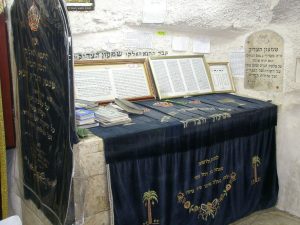
Tomb of Simon the Just in Jerusalem
משתמש: סול במול (Transfered by מתניה/Original uploaded by סול במול), GFDL <http://www.gnu.org/copyleft/fdl.html>, via Wikimedia Commons
We also know that Ben Sira’s grandson writes about how he translated the book into Greek during the thirty-eighth year of the reign of Ptolemy VIII in Egypt and we can date that to 132 BCE. So Ben Sira lived and composed his work about 170 BCE, making him a contemporary of the Maccabees and the early Hasmonean kings. His book is part of a category called wisdom literature, similar to the Biblical books of Proverbs and Kohelet. It is divided into eight sections and includes much ethical advice about how to relate to yourself, your spouse and children, your society and God. Ben Sira instructs his readers to seek out knowledge, choose good, stay away from extremes and marry a good woman and not a bad one. His portraits of Biblical figures are concise and colorful. One of them, about Elijah the prophet is featured on the statue of Elijah on Mount Carmel:
“Until a prophet like fire arose, whose words were like a flaming oven.” (Ben Sira 48:1)
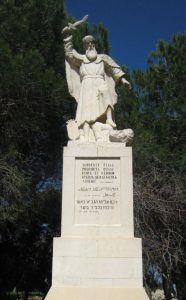
Ori~, CC BY-SA 3.0 <https://creativecommons.org/licenses/by-sa/3.0>, via Wikimedia Commons
Because Ben Sira’s words were very like the Bible, and in tune with the rabbis’ worldview, they are often quoted in Rabbinic literature. In at least one case, Ben Sira is considered to be part of the Ktuvim, the third section of the Hebrew Bible:
“And it is triplicated in the Writings, as it is written: All fowl will live with its kind, and men with those like him (Book of Ben Sira 13:17)”. (Bava Kamma 92b)
Usually his words are attributed to him, as in our Gemara or as here in Hagigah:
“as it is written in the book of Ben Sira: Seek not things concealed from you, nor search those hidden from you. Reflect on that which is permitted to you; you have no business with secret matters.” (Hagigah 13a)
Other times his words are quoted by a sage without saying where they come from, as when Levitas of Yavneh quotes Ben Sira 7:16:
“Rabbi Levitas a man of Yavneh said: be exceeding humble spirit, for the end of man is the worm.” (Avot 4:4)
The rabbis seem to have accepted Ben Sira’s message without considering him part of the Bible. In the well-known discussion about what books make your hands impure, i.e., are considered holy, Ben Sira is excluded:
“The scrolls of Ben Sira and all scrolls that are written from that point forward — they do not defile the hands.” (Tosefta Yadayim 2:5)
If a book has worthy messages, but is not part of the Bible, is it worth spending time on? This is the crux of a rabbinic discussion in Sanhedrin. Rav Yosef asserts that Ben Sira should not be read. His student Abaye challenges him that the book contains many of the same ideas we find in the Torah. Finally Rav Yosef acknowledges that it is permissible to read the parts that are wise, the rest is a waste of time:
“Rav Yosef says: we teach the superior matters that are in it” (Sanhedrin 100b)
Did Jews follow Rav Yosef’s advice? Besides the quotes from Ben Sira we also find his influence in other places. His poem in chapter fifty-one includes phrases that were later used as the endings for many of the blessings in the amida prayer:
הוֹדוּ לְגוֹאֵל יִשְׂרָאֵל, כִּי לְעוֹלָם חַסְדּוֹ.
הוֹדוּ לִמְקַבֵּץ נִדְחֵי יִשְׂרָאֵל, כִּי לְעוֹלָם חַסְדּוֹ.
הוֹדוּ לְבוֹנֶה עִירוֹ וּמִקְדָּשׁוֹ, כִּי לְעוֹלָם חַסְדּוֹ.
הוֹדוּ לַמַּצְמִיחַ קֶרֶן לְבֵית דָּוִד, כִּי לְעוֹלָם חַסְדּוֹ.
הוֹדוּ לְבוֹחֵר בִּבְנֵי צָדוֹק לְכֹהֵן, כִּי לְעוֹלָם חַסְדּוֹ.
הוֹדוּ לְמָגֵן אַבְרָהָם, כִּי לְעוֹלָם חַסְדּוֹ.
“O give thanks unto him that redeems Israel; For his mercy endureth for ever.
O give thanks unto him that gathers the outcasts of Israel; For his mercy endureth for ever.
O give thanks unto him that builds his city and his sanctuary; For his mercy endureth for ever.
O give thanks unto him that makes the horn of the house of David to bud; For his mercy endureth for ever.
O give thanks unto him that chose the sons of Zadok to be priests; For his mercy endureth for ever.
O give thanks unto the Shield of Abraham; For his mercy endures for ever.” (Ben Sira 50:12)
His description of Shimon haTzadik seems to have inspired one of the loveliest piyyutim we sing on Yom Kippur, Mareah Kohen:
מַה נֶהְדַּר בְּהַשְׁגִּיחוֹ מֵאֹהֶל, וּבְצֵאתוֹ מִבֵּית הַפָּרֹכֶת.
How glorious was he when he looked forth from the tent; And when he went out from the house of the veil! (Ben Sira 50:5)
So if his ideas and poetry were (mostly) acceptable, why didn’t Ben Sira get the ultimate honor of becoming part of the Bible? Perhaps the rabbis felt that Kohelet and Proverbs were enough to represent wisdom literature. Perhaps the better “pedigree” of those books, attributed to King Solomon, helped them. Or perhaps Ben Sira just wasn’t lucky. Because of this bad luck, the book of Ben Sira was gradually forgotten by the Jews, although the Christians preserved it in Greek form. The last rabbi that we know of who had the Hebrew original was Rav Saadia Gaon (tenth century CE). In the nineteenth century it was (re) translated into Hebrew.
But then Ben Sira’s luck began to change. One of the early documents discovered in the fabulous Cairo Genizah in the late nineteenth century was a page of Ben Sira in Hebrew. Dr. Solomon Schechter recognized it and was overjoyed, and eventually he found more parts of the original text. In the twentieth century, some of the Hebrew Ben Sira was discovered at Qumran, with the Dead Sea Scrolls, and some in the excavations in Masada. Today we have about two thirds of the original Hebrew text.
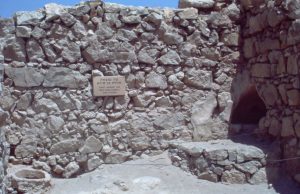
The room where the Ben Sira scroll was discovered on Masada
Wctrenchard, CC BY-SA 4.0 <https://creativecommons.org/licenses/by-sa/4.0>, via Wikimedia Commons
Does Ben Sira have wisdom for our modern age? Perhaps he does, even if he is not part of the Biblical canon.
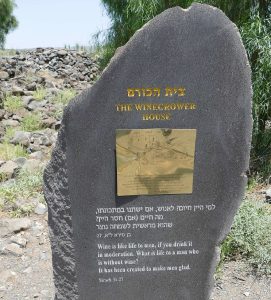
Bukvoed, CC BY 4.0 <https://creativecommons.org/licenses/by/4.0>, via Wikimedia Commons




